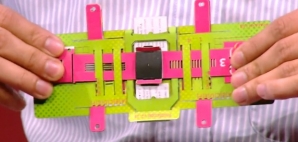High Throughput Precision Measurement Tools for Insect-Parasite Ecology in Field Settings
« Back to This Page Has Moved...
High Throughput Precision Measurement Tools for Insect-Parasite Ecology in Field Settings
Insect-borne diseases are one of the largest causes of human death, yet we have no way of predicting and controlling outbreaks. Due to the lack of measurement tools, we know very little about the ecological factors that influence vector-parasite interactions. This project proposes a device that will screen insect vectors in their natural habitat with minimal human intervention. It will use hydrogel-based low-cost microfluidic chips, baited with odorants, to capture single nanoliter volume droplets of saliva per insect bite from thousands of individual mosquitoes and test for both vector species and pathogens. The goal is to identify vector species and the parasites they harbor in a scalable, efficient and cost-effective manner that would be a major breakthrough for our ability to study insect-parasite interactions at ecological scale. It may lead to early warning systems for epidemics, monitoring of the evolution of insecticide resistance and a better understanding of how vector-borne diseases are transmitted.
News & Press Releases

Mosquito Surveillance Gets Major Funding »
Woods-affiliated researcher among Stanford scientists receiving awards totaling $11.5 million to pursue high-risk, high-reward research.

Free Microscopes for Citizen Scientists »
Stanford Woods Intsitute-affiliated bioengineer gives away thousands of microscope kits to foster scientific interest, encourage research on environmental public health issues
By Kris Newby,
Media Coverage
Stanford Indian American Prof Gets Gates Foundation Grant »
Cites $100,000 award to Manu Prakash, a Stanford assistant professor of biochemistry who is affiliated with the Stanford Woods Institute
